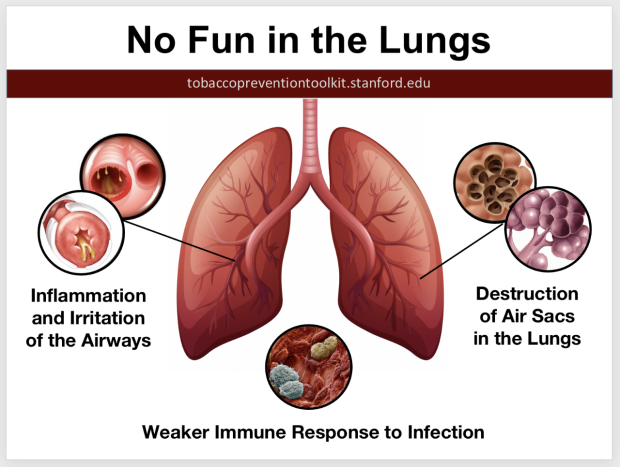Electronic cigarettes (e-cigarettes) are not beneficial for lung health. They deliver aerosols containing nicotine and other chemicals that can cause significant harm.
Key Risks to Lung Health
E-cigarettes expose users to:

- Harmful Chemicals: Flavorings like diacetyl can cause “popcorn lung” (bronchiolitis obliterans), a severe respiratory disease.
- Inflammation and Injury: Inhaling aerosols triggers lung inflammation, increasing risks for asthma exacerbations and chronic obstructive pulmonary disease (COPD).
- EVALI Outbreaks: Past incidents like e-cigarette or vaping-associated lung injury (EVALI) highlight acute dangers, often linked to vitamin E acetate in some products.
Comparison to Traditional Smoking
While e-cigarettes may expose users to fewer toxicants than combustible tobacco, they are not a safe alternative. For example:
- Short-term Use: Can reduce some risks but still impair lung function.
- Long-term Use: Evidence shows increased susceptibility to respiratory infections and irreversible damage.
Recommendations
Health organizations universally advise against e-cigarette use. As an alternative, consider evidence-based smoking cessation methods supported by medical professionals.









